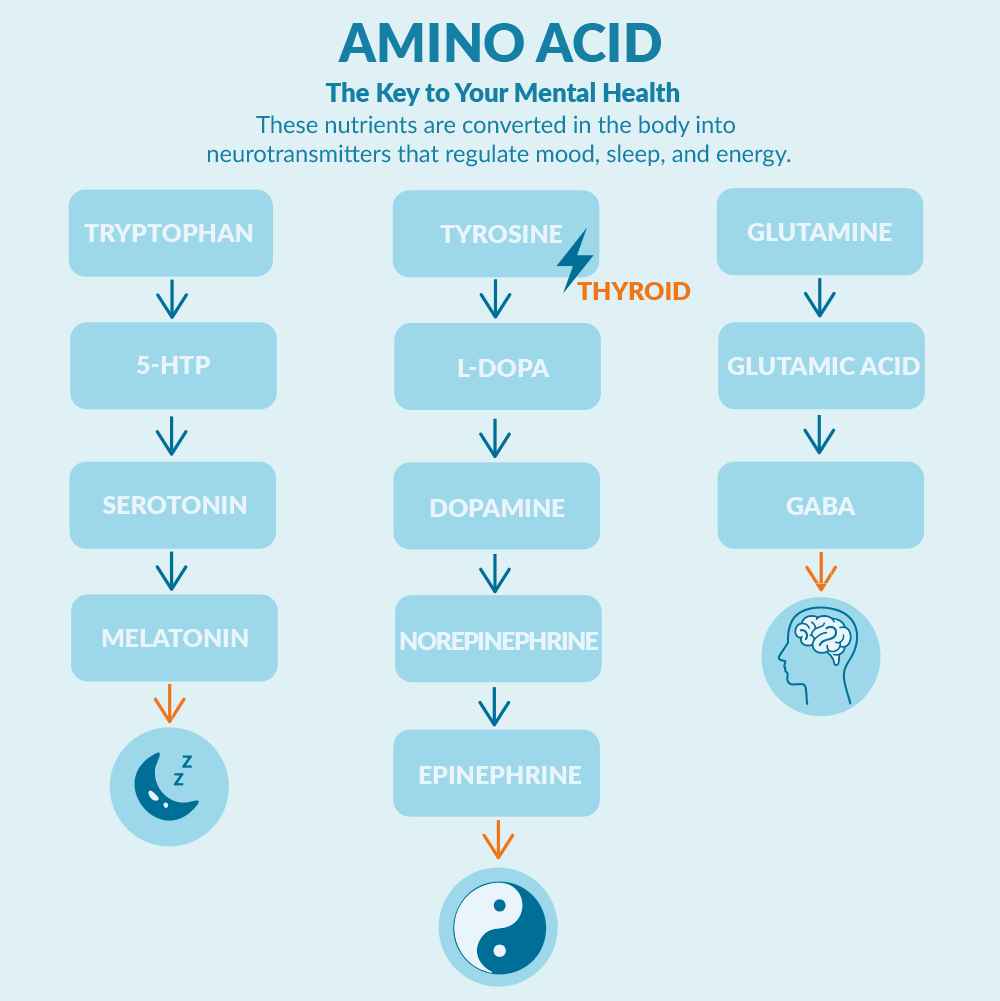Amino Acids Test
The Amino Acids Test measures 26 different amino acids in the blood. Measuring the levels of the amino acids can be beneficial if you experience: mental disorders/mood disorders, fatigue, weight problems (both overweight and underweight), digestive disorders and more. It is often ordered alongside the Nutrition Test to provide a detailed overview of your health concerns.

Get 5% off on 2 Lab tests, and 10% off on 3 Lab tests or more.
Amino acids, the building blocks of proteins, synthesize important molecules in the body, including neurotransmitters, hormones, and pigments. They play a crucial role in developing muscle mass, hair, and all body tissues. Balancing different amino acids is important, as some, like lysine, can block the uptake of others, such as arginine, and vice versa.
Amino Acid Therapy
People often associate amino acids with athletes or bodybuilders, but everyone needs them for mental well-being, digestion, nervous system function, reproductive health, and immune system support. For example, the body uses the amino acid tryptophan to produce serotonin, a neurotransmitter that affects mood.
Healthcare professionals use amino acid therapy to treat various ailments, including mood and mental health disorders, sleep issues, fatigue, cognitive function problems, and ADHD.

Understanding Amino Acid Levels
Your amino acid levels can be either too low or too high. Several factors can cause this imbalance:
- Weak digestion, which happens if you don't break down protein properly.
- Taking hydrochloric acid inhibitors like Omeprazole.
- Consuming a diet low in protein.
- Experiencing individual biochemical differences.
- Having a deficiency in cofactors, the supplemental nutrients the body needs to utilize amino acids.
- Suffering from diseases that impair the body's ability to use certain amino acids effectively.
Performing the Amino Acids Test
You should take the Amino Acids Test on an empty stomach in the morning. You can easily collect all our health tests, including blood tests, at home. To obtain capillary blood, prick a finger and collect the blood on dried blood spot (DBS) paper. Then send the DBS paper to our ISO-certified lab for analysis. We will deliver your results digitally. Children can also perform this test, as long as they can manage a blood test.
FAQ
Example report
Example of Amino Acids Test
Download exampleReview Product
No reviews available

